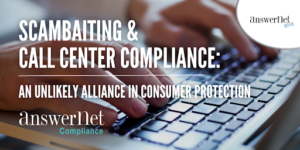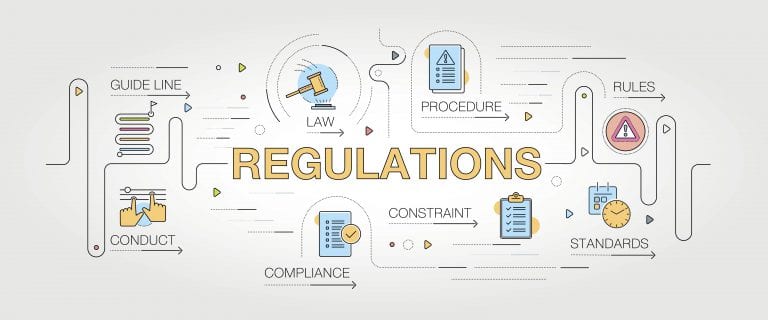By Nathan Teahon, VP of Operations
Finding a B2B call center honestly isn’t that difficult. Finding the right B2B call center is something that can be a little bit tricky. Also, nothing is worse than finding the wrong B2B call center. So, let’s say that you already have a call center in mind but you know very little about that organization. Of course the first step is going to be having a conversation with the key players within that organization. You have two primary objectives during that initial conversation. The first objective is to identify if you can see yourself working with the key players within the organization. The second objective is to make sure the organization meets your non-negotiable requirements. I like to call that “check box time”. If certain boxes aren’t checked, regardless of how great the organization and the key players seem, they might not even be an option for you. Finding that out sooner rather than later saves everyone a lot of time. The list of boxes to check will vary depending on what you are looking for and why you are going through a telemarketing vendor selection process. However, here are some of the things that are going to be most important:
- Vendor Specialty – Every individual has their own strengths and weaknesses. Call centers are no different. Do they do B2B? B2C? What percentage of their business is inbound vs. outbound? Are they more focused on sales, or more focused on surveys, political work, or lead generation? Is the call center focused more heavily in the insurance or medical industries? I could go on forever. Most outsourced call centers have more than one specialty and can adapt to different types of work, but there are probably some areas where they have more experience and some areas where they have none. I also know that this seems pretty obvious, but I have seen plenty of programs in my life being ran in a call center that was a fish out of water trying to accomplish something that they were far from experts at, and I certainly wouldn’t tell you that I haven’t made the mistake before either.
- Capacity/Locations – It is certainly important to know how many locations a call center has, how many seats are in each location, and what is the growth potential at those locations. It’s also important to be frank about where the work would be dialed. Perhaps the organization has two domestic locations and one near-shore and you only want your program being dialed domestically. Expectations should be set accordingly, as you don’t want your program being dialed anywhere that you haven’t approved. This also includes if the center ever outsources work to third parties.
Additionally, depending on the size and potential future scope of your project, having an understanding of current capacity and availability for growth can be important. Starting with a call center that is great is one thing, but if they don’t have the ability to grow with you that can be a potentially unwanted hurdle in the future.
- Dialing Technology – It’s important to have an understanding of the technology that the center uses and to ensure that what they utilize is going to match your needs. I have tested a number of call centers that couldn’t run their dialers aggressively enough to be successful on certain campaigns. In other instances, I’ve found that some call centers flat out don’t have the functionality to meet data and reporting requirements.
Along with dialing technology, what tools do managers/supervisors have at their disposal to properly run the program on a day to day basis? If you are running a B2B Telemarketing sales campaign and the supervisor doesn’t have real-time access to relevant KPIs then that is a big problem. It’s like running a program blind and hoping for the best.
Another consideration is if the center has a Non-Automated Telephone Dialing System (non-ATDS)for placing outbound calls to wireless numbers. And I’m always certain to ask if they have a proper opinion letter backing up the technology from a legal perspective. It might not be necessary but understanding all options up front is important.
- Organizational Structure – It’s important to understand the org chart of the company that you are working with. Is the Call Center Manager also the IT Guy and the QA department? A person wearing multiple hats isn’t always a bad thing, but you should be aware of and comfortable with the structure of the team that will be working on your project before you give them the business . To me, knowing what a call center’s quality assurance and verification processes looks like it is very important, because I want to know that quality is not just lip service. Additionally, having a sense for what a call center’s supervisor ratios look like is good to know. The bottom line is that you want to know that there are proper resources in place to take care of your program appropriately.
- Certifications/Compliance – What certifications does the call center have and are there any that you require? Below are some that might be important.
- PCI Certification – There are different levels of PCI Certification so it is important to get a copy of their AOC upfront if you require PCI Level 1 certification. It is not uncommon for an organization to be PCI compliant and think they have a higher level of certification than they do.
- SOX Compliant
- HIPAA Compliant
- PACE Self Regulated Organization
- PACE Customer Engagement Compliance Professional
- Licensed Insurance Agents – if so, which states?
Once you have gone through those steps, you should have a clear understanding if they at least have checked off the proper boxes to meet your minimum requirements. I then like to have a monitoring session (after a Mutual Non-Disclosure Agreement has been signed) with the vendor to get a further sense if they are an organization that fits with my needs. During the monitoring session I am paying attention to a number of different things. First and foremost, I want to get a feel for the quality of agents that they have. Are they professional, do they seem skilled and knowledgeable, are they representing their brand well, are they reading a script or having conversations? This is the most important thing. In addition, as part of the monitoring session, I also like to get a sense if their management staff is comfortable with client monitoring sessions. Do they, organizationally, conduct a lot of monitoring sessions? Is it important to them? Who organizationally is helping conduct the session? Does their dialer seem to be running efficiently and appropriately for what the agents are assigned to? These sessions almost always go very well, but when you see something that is off it sticks out like a sore thumb. I like to do this before visiting the call center because a lot can be revealed during a call monitoring session like this.
From there it is important to actually visit the call center or do a small test. If you have something that is easy enough to set up and can be easily tested that is low risk, then that I don’t feel it is bad to take this step prior to visiting the call center. If doing an easy test is not a luxury you have then visiting the call center in person as a next step is a must. It’s the last chance you have to ensure that all of those checked off boxes really do equal something that could be a successful partnership. Perhaps you will find that the culture ends up not matching the needs of the program. Perhaps it matches up perfectly and you have an opportunity to build on that partnership before a program launch. Finding an excellent B2B Call Center can be daunting, but when you are successful, it is extremely rewarding.
Nathan Teahon is the Vice President of Operations for Quality Contact Solutions, a leading outsourced telemarketing organization. As a highly competitive person, Nathan brings his “A” game to work every day, ensuring that each of his clients wins on a daily basis. Nathan carefully balances the operations resources and client goals to ensure his clients receive the highest possible results at the lowest cost. Nathan is a true, born and bred telemarketer. He grew up in the business and intimately knows (and has played) every position on the field, including supervisor, quality assurance, call center manager, program management, account management, and call center psychologist. Nathan can be reached at Nathan.teahon@qualitycontactsolutions.com or 516-656-5133.









